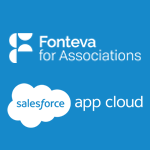Description

Ning for Businesses

Skyword
Comprehensive Overview: Ning for Businesses vs Skyword
To provide a comprehensive overview of Ning for Businesses and Skyword, let’s break it down into the specified categories:
Ning for Businesses
a) Primary Functions and Target Markets
- Primary Functions: Ning is a platform that allows users to create their own social networks. Its primary functions include providing tools for building customizable social communities, complete with forums, blogs, and multimedia integration. For businesses, Ning offers features that enable brand community building, customer engagement, content sharing, and event promotion.
- Target Markets: Ning caters primarily to small to medium-sized businesses (SMBs), non-profits, educators, and influencers seeking to create private or public communities. It aims at organizations looking to foster direct engagement with their audiences without relying on larger social media platforms.
b) Market Share and User Base
- Market Share and User Base: Ning's market is fairly niche, primarily because it targets organizations and businesses looking for community-focused solutions. It doesn't compete directly with mainstream social media platforms but rather with other community-building tools. Due to a highly specialized market, its overall market share is smaller compared to larger communication and engagement platforms, focusing on depth rather than breadth in its user engagement.
c) Key Differentiating Factors
- Customization: One of Ning's strongest differentiators is its high level of customization, allowing users to build unique community features tailored to specific needs.
- Control and Ownership: Ning offers more control over user data and interactions compared to larger social networking sites, which can be a critical factor for businesses that prioritize data privacy.
- Integrated Features: The platform provides integrated features including social networking, content management and user interaction tools in one package, which is beneficial for businesses seeking an all-in-one solution.
Skyword
a) Primary Functions and Target Markets
- Primary Functions: Skyword is a content creation platform aimed at enhancing content marketing efforts. It provides tools for content planning, creation, editing, and distribution, as well as analytics and workflow management. Skyword empowers businesses to manage their content marketing campaigns efficiently, working with a network of professional writers to generate brand-driven stories.
- Target Markets: Skyword targets mid-sized to large enterprises that invest heavily in content marketing. It is particularly valuable for brands looking to scale their content output and enhance their storytelling capabilities across various digital channels.
b) Market Share and User Base
- Market Share and User Base: Skyword is a leader in the content marketing platform space, with a significant user base of marketing professionals and large brands. Its market share is substantial in the content marketing niche, although it is still competitive alongside platforms like Contently and NewsCred.
c) Key Differentiating Factors
- Content Network: Skyword's access to a large network of professional freelancers and content creators is a major differentiator, enabling brands to tap into a broad talent pool.
- Comprehensive Analytics: Offering advanced analytics and reporting features, Skyword provides deep insights into content performance, assisting businesses in optimizing their content strategies.
- Custom Solutions: Skyword offers personalized solutions and editorial support, often working closely with businesses to develop tailored content strategies that align with their marketing goals.
Conclusion
In summary, Ning and Skyword serve different niches within the business technology landscape. Ning focuses on community building and engagement, appealing to those who want to foster closer relationships with their audiences, while Skyword concentrates on content marketing and brand storytelling for larger enterprises. The key differentiators lie in their primary functionalities, market focus, customizability, and integration capabilities.
Contact Info

Year founded :
Not Available
Not Available
Not Available
Not Available
Not Available

Year founded :
2010
+1 800-778-7879
Not Available
United States
http://www.linkedin.com/company/skyword
Feature Similarity Breakdown: Ning for Businesses, Skyword
When comparing Ning for Businesses and Skyword, both of which are platforms designed to facilitate content creation and community building, it’s important to look at their features, user interfaces, and unique selling points. Here's a breakdown:
a) Core Features in Common
-
Content Creation:
- Both platforms offer robust tools for creating and managing content. Ning allows users to create various types of content such as blog posts, videos, and photos, while Skyword provides content creation capabilities with a strong focus on storytelling and brand-aligned content.
-
Community Management:
- Ning and Skyword both support building and managing communities. Ning is centered around creating social communities where users can interact and engage, whereas Skyword emphasizes managing content contributors and fostering collaboration between marketers and creators.
-
Customization:
- Both platforms offer customization options, allowing users to tailor the look and feel of their site or community to align with their brand identity. Ning provides various templates and design flexibility, and Skyword offers thematic storytelling aligned with brand guidelines.
-
Analytical Tools:
- Ning and Skyword provide analytics to track engagement and performance. Ning focuses on community and user engagement metrics, while Skyword offers detailed insights into content performance and audience engagement.
-
Monetization Options:
- Both offer monetization features. Ning allows for memberships, donations, and ad placement, whereas Skyword, through strategic partnerships and attribution links, helps monetization in alignment with content marketing strategies.
b) User Interface Comparison
-
Ning:
- Ning’s user interface is intuitive, focusing on simplicity and ease of use for setting up communities. It offers drag-and-drop features for customization, making it accessible for users without technical backgrounds. The interface tends to emphasize social engagement features such as activity feeds and forums.
-
Skyword:
- Skyword’s interface is optimized for content strategy and campaign management. It provides a dashboard-centric approach where users can plan, create, and analyze content all in one place. The interface is more aligned with professional content creators and marketers needing in-depth analytics and project management tools.
c) Unique Features
-
Ning:
- Social Community Focus: Ning specializes in community building with features such as forums, groups, and event management that allow users to create a vibrant social network.
- White-Label Options: Ning provides white-label solutions, which means businesses can brand their platforms entirely under their own name without Ning branding.
-
Skyword:
- Content Strategy Integration: Skyword offers tools that align content strategy directly with business goals. It provides built-in project management features and integrates seamlessly with various editorial calendars and workflows.
- Advanced SEO and Audience Targeting: Skyword has strong SEO tools and audience profiling features that help tailor content to specific demographic segments for more effective reach and engagement.
In summary, while Ning is more focused on building social communities with customizable features, Skyword excels in providing a comprehensive platform for content marketing and strategic storytelling with advanced analytics and strategy tools. Each has its own strengths depending on the specific needs of the business in focus.
Features

Communication Tools
Community Building
Monetization Options
Content Creation
Analytics and Insights

Content Creation and Management
Content Performance Tracking
Content Optimization
Audience Engagement
Security and Support
Best Fit Use Cases: Ning for Businesses, Skyword
Ning for Businesses
a) Best Fit Use Cases:
-
Community Development: Ning for Businesses is ideal for companies or projects that aim to build robust online communities. It is particularly well-suited for organizations wanting to create a vibrant network for customer engagement, sharing ideas, or fostering niche interest groups.
-
Membership-Based Organizations: Associations, clubs, or alumni networks can benefit from Ning’s ability to manage and engage members, offering features like member profiles, forums, and content sharing.
-
Small to Medium Enterprises (SMEs): SMEs looking to enhance customer loyalty through community presence or those wanting cost-effective solutions for customer interaction and feedback might find Ning very useful.
-
Internal Company Networks: Businesses that require an internal social network to improve communication among employees or departments can exploit Ning’s platform for knowledge sharing and idea collaboration.
Skyword
b) Preferred Use Cases:
-
Content Marketing Focus: Skyword is the preferred option for businesses heavily relying on content marketing strategies to drive brand awareness, lead generation, and customer engagement. This is particularly true for companies in industries like media, healthcare, and technology, where high-quality content is crucial.
-
Enterprise-Level Content Needs: Large organizations with expansive content requirements needing a centralized platform to manage, produce, and optimize content across various teams and locations will find Skyword beneficial.
-
Brands Seeking Content Expertise: Businesses that need not just content management but also strategic guidance in storytelling, audience engagement, and analytics would leverage Skyword’s services effectively.
-
Cross-Platform Content Strategy: Companies focused on reaching audiences through diverse channels and formats (articles, videos, infographics) and requiring analytics to measure content performance would prefer Skyword.
d) Industry Verticals and Company Sizes:
Ning for Businesses generally caters well to industries that benefit from community-driven engagements, such as education, non-profits, interest-based groups, and smaller corporate environments focusing on internal social structures. Its features are scalable but particularly attractive to smaller to mid-sized firms or organizations looking to create a sense of community without requiring extensive IT resources.
Skyword, on the other hand, aligns effectively with larger enterprises needing comprehensive content strategies. It serves industries where content plays a significant role, such as digital media, healthcare, technology, and consumer brands. Skyword’s platform scales to support a wide array of content initiatives, making it suitable for both mid-sized firms expanding their content marketing efforts and large corporations maintaining complex, multi-channel content strategies.
Pricing

Pricing Not Available

Pricing Not Available
Metrics History
Metrics History
Comparing teamSize across companies
Conclusion & Final Verdict: Ning for Businesses vs Skyword
Conclusion and Final Verdict for Ning for Businesses vs Skyword
a) Best Overall Value
When considering the overall value, it's essential to evaluate both Ning for Businesses and Skyword based on their features, pricing, scalability, ease of use, and target audience.
-
Ning for Businesses: Best suited for companies looking to build online communities with a focus on networking, user engagement, and content sharing. It provides a cost-effective solution for small to medium-sized businesses that need basic community features.
-
Skyword: Ideal for larger organizations or businesses primarily focused on content marketing and storytelling. Skyword offers advanced content creation and distribution tools, making it more valuable for companies aspiring to enhance their digital marketing strategies.
Overall Value Verdict: Skyword offers the best overall value for businesses looking for a comprehensive content marketing platform, particularly if content creation and distribution are high priorities. Ning for Businesses is better for organizations prioritizing community engagement and social networking.
b) Pros and Cons
Ning for Businesses
-
Pros:
- User-friendly interface with simple setup and management for community building.
- Cost-effective for small to medium enterprises.
- Offers customization and engagement features such as forums, blogs, and social networking.
-
Cons:
- Limited advanced content marketing capabilities.
- Does not have robust analytics tools compared to Skyword.
- May require additional third-party integrations for comprehensive marketing needs.
Skyword
-
Pros:
- Comprehensive content marketing platform with strong emphasis on content strategy and creation.
- Advanced analytics and reporting tools for measuring the impact and reach of content.
- Supports integrated content distribution across multiple channels.
-
Cons:
- Higher cost, which can be prohibitive for smaller businesses.
- Can be more complex to set up and manage than simpler platforms like Ning.
- May require more dedicated resources or personnel for full utilization.
c) Recommendations for Users
-
Evaluate Business Goals: Assess your primary objectives—are you more focused on community building or content marketing? Choose Ning for Businesses if fostering an interactive user community is key. Opt for Skyword if enhancing your content marketing capabilities is your main goal.
-
Consider Budget and Resources: If budget constraints are a significant concern, especially for smaller businesses, Ning might present a more accessible option. On the other hand, if your business can afford a higher investment for a better return on content marketing, Skyword should be considered.
-
Scalability Needs: Consider the potential growth of your business. Skyword offers more scalability for businesses looking to expand their content marketing efforts significantly, whereas Ning's simplicity might be limiting in the long-term for rapidly growing enterprises.
-
Trial and Feedback: Take advantage of any trial periods or demos to experience the platforms firsthand. Gather feedback from team members who will be using the tools daily to gauge which platform better suits your business processes and team capabilities.
In conclusion, while both platforms have their unique strengths, your final choice will largely depend on your business's specific needs and priorities. Skyword is better for a content-centric approach, while Ning is suitable for community-focused strategies.
Add to compare
Add similar companies



